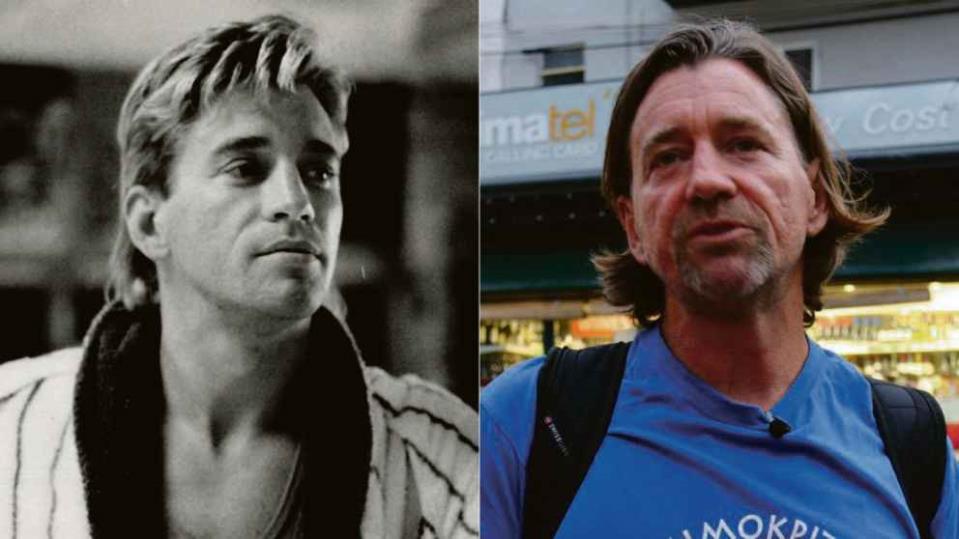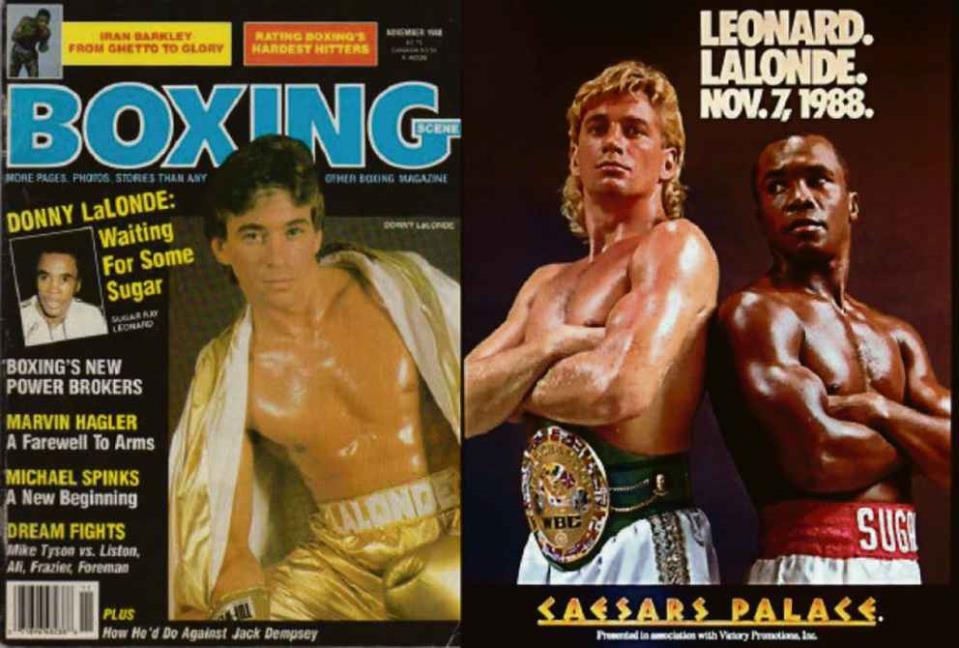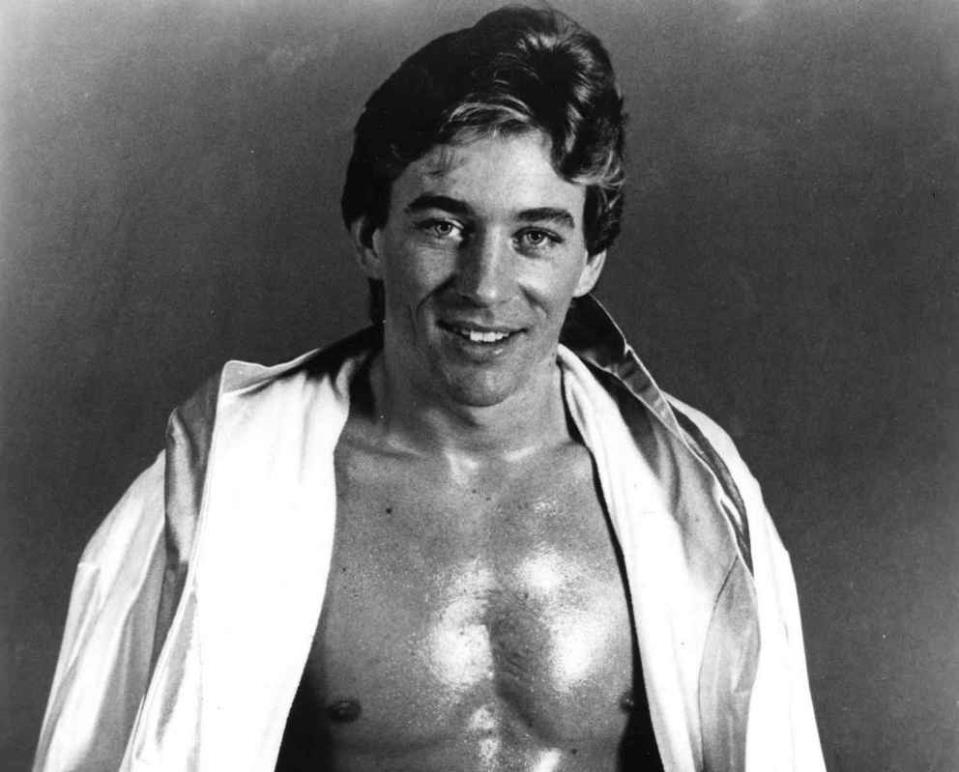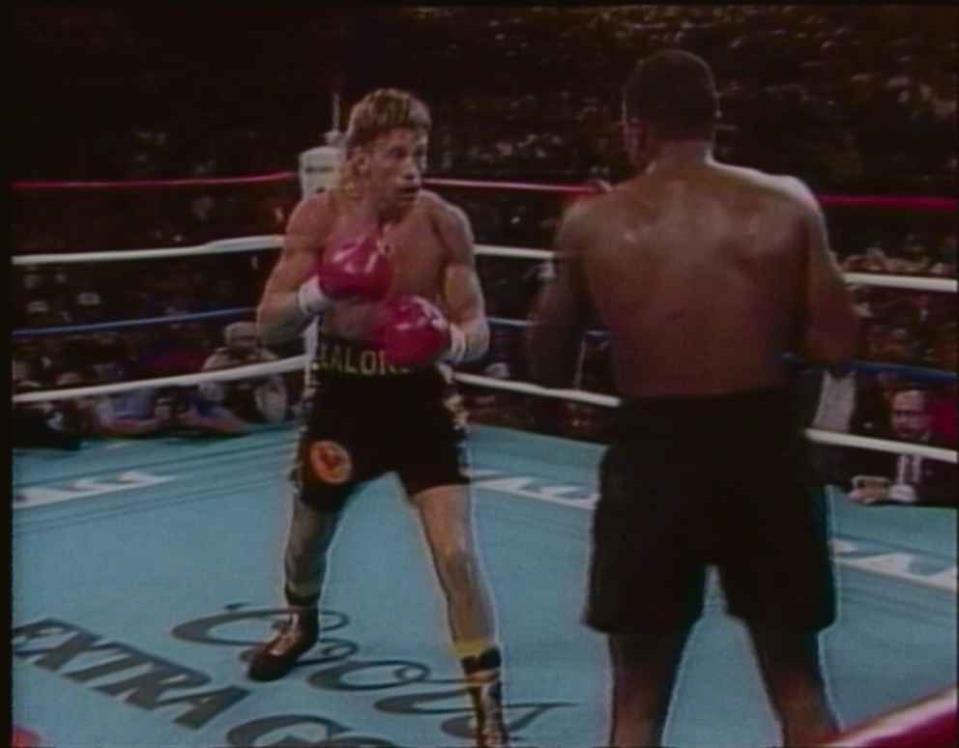“In my opinion, the investigative journalists slanted their story to try to make me look like a criminal. I haven’t done anything illegal or immoral,” Donny “Golden Boy” Lalonde told The Malta Independent on Sunday this week in an attempt to clear his name following reports by the Canadian Broadcasting Corporation, the Toronto Star and The Malta Independent.
The reports revealed that the former light-heavyweight world champion boxer’s links to the Panama Papers and a massive $3.5 million class-action lawsuit in Costa Rica linked to fraud. Lalonde reached out to The Malta Independent on Sunday to explain himself and give further details which, according to the boxer, were not mentioned or were the fruit of “incorrect journalism”.
After the International Consortium of Investigative Journalists leaked more than 11.5 million financial and legal records from Mossack Fonseca, a Panama-based law firm, Lalonde became the focus of an investigation by Canada’s CBC News and the Toronto Star in collaboration with TMI. This newsroom joined the investigation after it was found that Lalonde moved to St Paul’s Bay in Malta last year with his wife and is currently managing a Libyan boxer, Malik Zinad, at Dixon’s Gym in St Julian’s.

Lalonde said that there were “hundreds of happy investors” from his real estate ventures, adding that journalists have opted to “find a few and have a group that has been coerced into cooperating to ‘try’ to do a lawsuit for the last five years.” Lalonde insisted that there is no actual lawsuit to date, as the 29 people do not have a real claim to make.
“To use them to tie my name into things to reflect ‘another public figure abusing the people’ that had ‘ties to the Panama Papers’ is completely slanderous in my eyes,” said the clearly upset Lalonde.
Lalonde slammed journalists Katie Nicholson from the CBC and Tanya Talaga from The Star in particular, saying that “there has been a lot of discussion, incorrect journalism on parts outside of your office from when Katie and Tanya where here. I won’t say it is intentional, but I will say it was sloppy, slanted to fit their story.”

About reports of his being forced to file for bankruptcy in Canada in 2004, Lalonde said that it was “perpetuated by the seizing of my assets and funds, not the failing of real estate projects.” He said he fought that claim in court and won.
“I brought documentation of everything to show the investigative journalists those facts, gave them time to research and see there was no trail of hurt investors from my development in Canada, but that is not what they wrote. I started with millions of legal, hard-earned, post-tax money in Canada, and was left with $11,000. Who was hurt?”
He explained that the real estate market in Canada slumped due to four main reasons — A fishing moratorium due to overfishing, fishing being a large part of the economy; a soft wood lumber dispute due to NAFTA, where Canada sued the US for billions that killed the lumber industry; the government laying off 30,000 workers; and a mould problem in condominiums on a large scale in the region which led to new regulations causing a further slump.
“Those issues affected our last project called Hidden Hills. But that had nothing to do with my bankruptcy. I had a net worth of $6.4 million when the tax department froze my accounts and assets,” said Lalonde, adding that these issues were never reflected in the articles. Lalonde concluded that “a false pretence by the tax department lead to my bankruptcy, not failed real estate projects.”

He explained that the infrastructure loan of approximately $320,000 on the development was owed to a bank, not investors. He also added that the loan of about $300,000 from a ceramic company was a private lender for spec houses they built on a certain ‘Hidden Hills project’.
“We lived in one of the houses and two were rented to pay the mortgage payments to that lender until the bank foreclosed on the development loan because I couldn’t get my money released from Revenue Canada. I could have handled those loans had I had access to my funds. That debt was not to an investor but a savvy private lender who had a second security from me. He ended up with all of his money and more when it was over.”
Of the Hidden Hills project, Lalonde said that the project was eventually completed. “I am proud of that project and all my successful real estate developments that I completed with my money, not investors’ money.”
Lalonde insisted that the freezing of his assets led to his bankruptcy in the late 1990s, not in 2005 as was suggested. “January 2005 was the end of a long and drawn out bankruptcy procedure. The appeal took well over a year. We negotiated for a couple of years, which led to me making boxing comeback. They were to get 20 per cent of the boxing revenue up to $1 million and would release me and would not force me into bankruptcy. I made every effort to fight going bankrupt.”

Once he got to Costa Rica, he had help from the owner of a realty company he worked at to get started. “The market improved quickly after 2004 and I was on my way to rebuilding but these writers make it sound like I was somehow broke one day and wealthy the next – or cheated Revenue Canada on my bankruptcy. It was about five or six years between when they froze my assets and started the financial nightmare and 2005. What was I supposed to do — stop eating or feeding my family?”
He also spoke about his reportedly failed ventures in Costa Rica, namely his El Escape, which was dubbed a Wild-West village; and Howler Ridge, which promised two residential communities with all amenities, a restaurant and a microbrewery.
“I cannot be held responsible for a world financial crisis or the fall out of real estate values from that, and I am not able to effect rain fall. The boom/bust from the crisis did cause a huge echo and there are people like me still waiting for the market to recover in our area but again there is another factor and that is water. The drought is a reality — there is, right now, a $15 million water infrastructure project on the table for the whole area and currently there is construction ongoing to install $1 million infrastructure starting on Howler Ridge and going right up to the town the other projects are in.”
When it came to his companies in Panama, he was advised by his attorneys at Mossack Fonseca, which he had mentioned initially he thought were as good as any law firm because they had a good reputation, to open a company for every bit of land he procured and worked on. This meant that, at a point, he reportedly controlled 38 companies in Panama related to what he called the largest real estate development project in Costa Rica.

Speaking about his current active links to Panama companies, Lalonde said: “I am set up in a foundation in Panama and there is nothing illegal or ‘wrong’ with that. It is perfectly legal and typical for millions of people, companies, multinational companies, etc.
“As I told Tanya and Katie, all or almost all of hedge funds that trade on the major stock exchanges use The British Virgin Islands and or Panama for their corporate head quarters so they net more profit for the investors.”
Speaking harshly about the complainants in the reported lawsuit, Lalonde said: “No one is complaining when it works to their advantage. Because they use these jurisdictions the investors make more money than they report their tax dollars to their respective country of residence.”
Lalonde explained that Costa Rica has a territorial tax system much like Panama, so — according to the boxer — what he did there is “100% legal.”
“With that foundation, I am free to enjoy my life here, try to contribute and travel if I so choose. If I make money in Malta I pay my taxes here like anyone else. What I make elsewhere, Malta doesn't care about. Is there something wrong with this? There is nothing “underhanded” about my life or what I am doing. I am transparent. That is why I welcomed the reporters to Malta and they abused that welcome in my opinion to serve their purposes.”
Finally, regarding Malta’s Individual Investor Programme, which TMI specifically asked about, Lalonde said that he has been a non-resident of Canada for 14 years. “I love Canada in so many ways and have no need to use Malta for its citizenship as Canadians do not have to deal with their government on tax related issues if they are non-residents. I have the benefits of being a Canadian and the freedom to enjoy the benefits of Malta.”